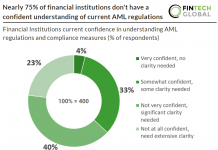In a recent post by Kidbrooke, the company outlined how wealth management can be democratised by utilising financial analytics.
The evolution of technology, particularly in the wealth management sector, has been swift and influential.
Incorporating machine learning and gamification methods, the sector continues to adapt, despite global challenges like the inflation crisis and the ongoing conflict in Ukraine. The critical issue at hand is determining how these technological advances can democratise wealth management, making it accessible to a broader audience while ensuring profitability for companies.
Retail investors have significantly impacted the global financial scene in recent times. These investors accounted for 52% of the world’s assets under management in 2021, a figure expected to rise to 61% by 2030. Prominent industry players have also embraced this democratisation trend. For instance, Reuters highlighted that six of the most renowned online brokerages in the US accumulated over 100 million users in 2021. Notably, Robinhood, a leading retail investing platform, boasted 18 million users and managed assets worth over $80bn by July 2021.
But there’s an underlying concern – the gap in financial advice. Recent data indicates that access to wealth management services remains elusive for many. An alarming 73% of financial advisers acknowledge that this advice gap has widened over the last five years. A study conducted by Royal London disclosed that merely 26% of UK adults sought financial advice, indicating a significant portion of the population is missing out on its benefits.
So, what’s fueling this gap? Primarily, trust issues plague the relationship between potential investors and financial advisers. Additionally, many individuals lack the necessary financial education to feel confident in their investment decisions. To illustrate, a Wealthify survey revealed that 72% of UK savers lacked the confidence to invest, with 38% admitting to not understanding the mechanics of investing. Only a small fraction (16%) of those with approximately £5,000 in savings contemplated investing.
The high costs associated with financial advice also deter many potential investors. The Financial Conduct Authority (FCA) suggested that individuals should have at least £10,000 in investable assets to seek professional financial counsel. However, this benchmark seems underestimated, with some advisers advocating for a figure closer to £48,000.
Regulatory measures, like the FCA’s ‘consumer duty’ regime, have been introduced to enhance the quality of advice provided. This regulation, which took effect on July 31, 2023, aims to ensure that financial firms focus on achieving positive results for their customers. It’s now mandatory for wealth managers to scrutinise every facet of the customer’s journey. In response, organisations like PIMFA have created resources to help firms adhere to these new directives.
However, the real game-changer lies in the integration of financial analytics tools, like Kidbrooke®’s OutRank®. These platforms enable businesses to enhance their service quality, gather feedback more effectively, and expand their customer base. Leveraging these tools can result in substantial cost savings, streamlined business operations, and a better representation of value to the client.
In conclusion, the combination of advanced technology and strategic regulatory efforts can help bridge the advice gap in wealth management. Through innovative tools and approaches, wealth management can truly become accessible for all, setting the industry on a path to a fairer, more inclusive future.
Read the full post here.
Keep up with all the latest FinTech news here
Copyright © 2023 FinTech Global











